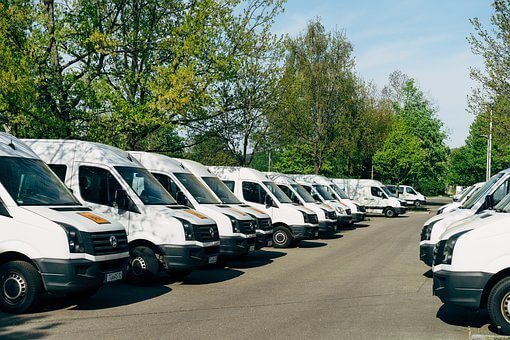Fleet insurance is insurance coverage for a business’s vehicles. Instead of getting insurance for individual cars, you can get collective insurance for the fleet. It will save you the hassle of monitoring each vehicle’s separate car insurance policy and reduce the cost of insuring your business’s vehicles.
Small companies face plenty of risks, and fleet insurance is one way to minimize that risk. Risk management is crucial for any organization’s ongoing existence and financial prosperity. The following are ways fleet insurance can enhance risk equations, particularly for SMEs:
Economic And Financial Risk
The most significant way fleet insurance can enhance risk equations for small businesses is by reducing their economic and financial risk. For starters, if anything happens to a vehicle in the fleet without insurance, all the subsequent payments will have to come out of pocket, which would cost the business a lot of money.
The trusted experts at Cheap Insurance will tell you the same thing. Moreover, the cost of insuring every vehicle in a fleet is much more than collective fleet insurance. Therefore, fleet insurance saves the company money and mitigates the financial risk the company would face if their vehicles broke down or were in accidents.
If vehicles in an SME’s fleet are involved in an accident, it increases the premiums they would subsequently have to pay if they had individual insurance. With fleet insurance, the rise is much smaller as only one car in the fleet is affected, and it has a lesser effect on the company’s premiums to cover the entire fleet.
If the driver or employee sustains an injury during the accident, it could cost the company money, but your company can mitigate the financial loss thanks to fleet insurance.
Operational Risk
The vehicles in a company’s fleet must fulfil many requirements to be operational. The cars’ maintenance, fitting, and roadworthiness are crucial to ensuring they serve their purpose in helping the company be operational.
In most cases, the company will lose money if its fleet is not fully functional and ruin its operations. Fleet insurance mitigates operational risk because it ensures the vehicles can be quickly restored to full functionality and contribute to the business’s operations. Otherwise, it could lead to issues with suppliers, customers, and other stakeholders that could damage the business.
Legal Risk
When a company car is involved in an accident, there are legal repercussions that the company has to face. Such an accident could result in a lawsuit against the company, which can have dire implications if the company car driver is at fault.
Business insurance will often handle such legal issues and their consequences. However, fleet insurance enhances a company’s risk equation as an added measure that will protect the vehicle and the legal risk that comes with it. Having workers’ compensation insurance if an employee or driver is injured during an accident will also be a good idea.
Compliance Risk
Every business must comply with various regulations, including those pertaining to its fleet. Moreover, a business must meet different requirements for an insurance company to provide fleet insurance, which will help with compliance.
Driver’s licenses, vehicle maintenance records, permits, and driver’s health records are several of the documents the company will require before offering coverage.
Therefore, fleet insurance can help a business reduce its compliance risk by meeting all the requirements. When authorities conduct audits, the fleet will be in great shape averting the consequences of not meeting regulations.
Fleet insurance is something every small and medium enterprise should consider. It can help reduce compliance, legal, operational, economic, and financial risks. Enhancing your business’s risk equation saves money and ensures its existence.






















